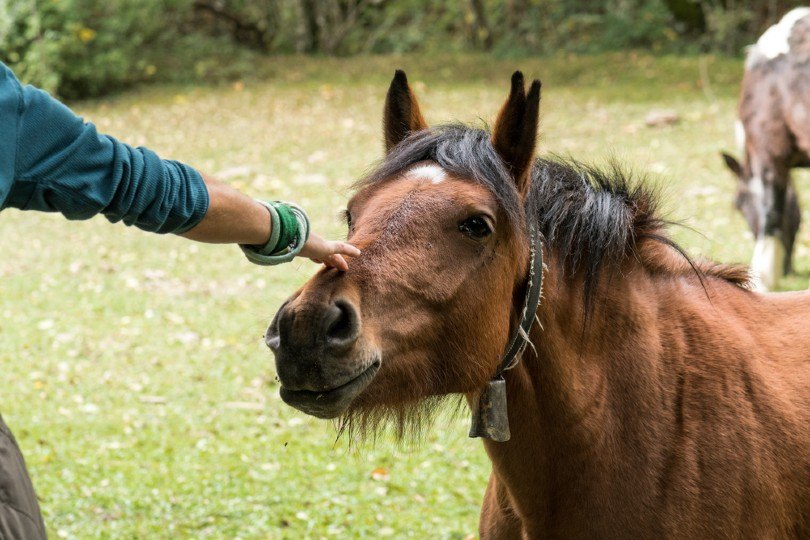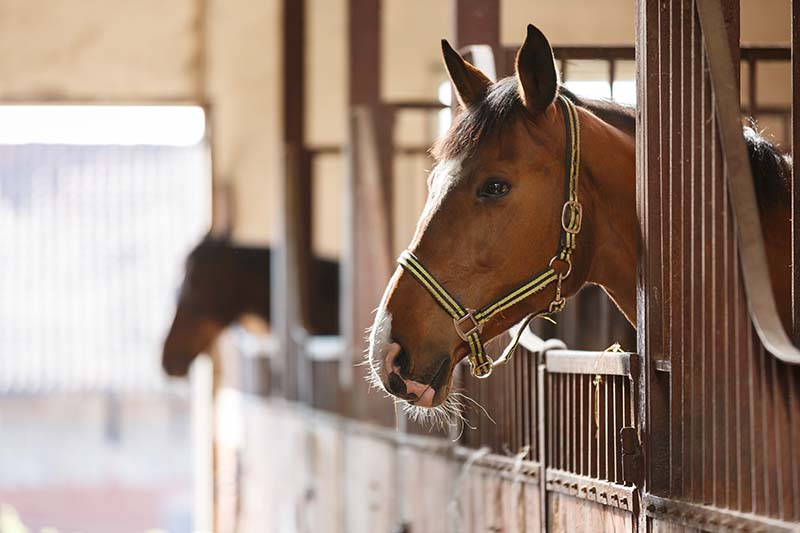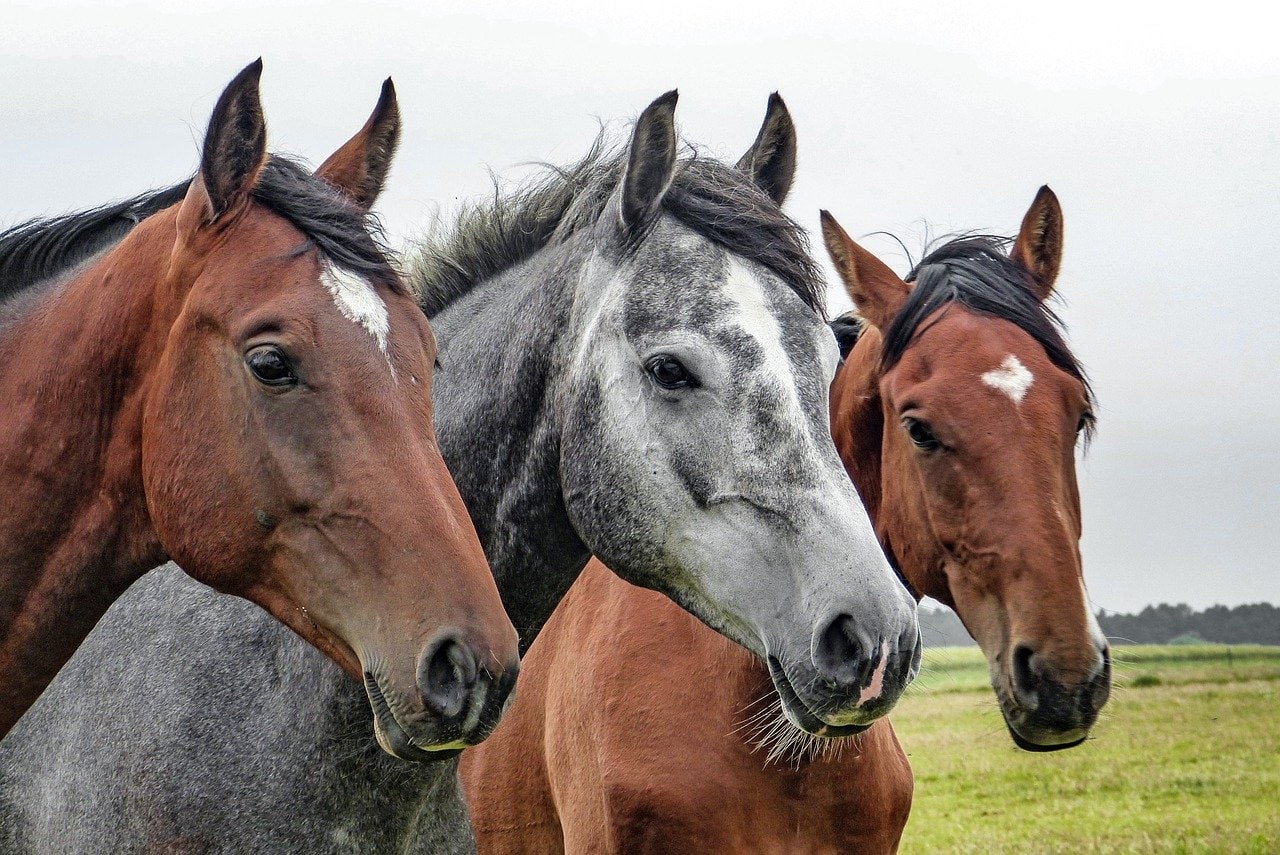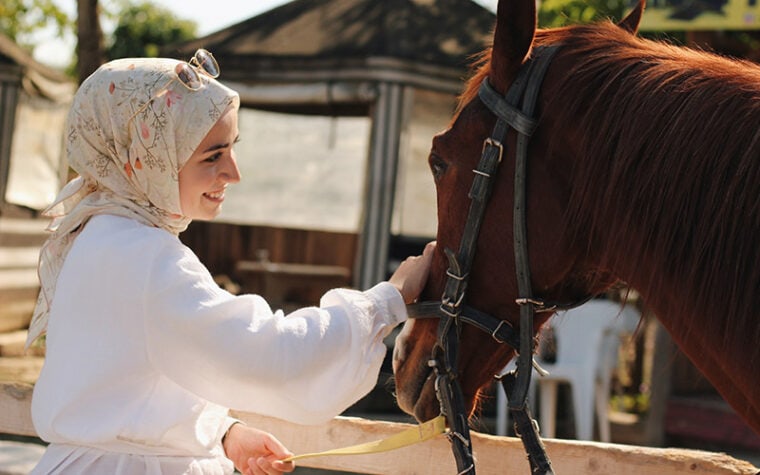
Owning a horse is a dream come true for many. Sharing your life with these majestic creatures has many physical, mental, and emotional benefits, but it also comes with a lot of responsibility and hard work.
First-time horse owners should be well-prepared and knowledgeable about what it takes to be successful. Since there is so much that goes into owning horses, we are going to cover the most critical tips that any first-time horse owner should keep in mind.
 The 12 Tips for a First-Time Horse Owner
The 12 Tips for a First-Time Horse Owner
1. Understand the Commitment
One of the most important things to understand as a first-time horse owner is the type of commitment and responsibility involved with owning these large, incredible animals. Is it worth it? Absolutely, but it’s not going to be suitable for everyone.
First and foremost, owning a horse is a lifetime commitment. The lifespan of the average horse is between 25 and 30 years, much longer than your average house pet and other farm animals. You need to be able to provide them with food, water, shelter, veterinary care, and all other needs for the long term.
It’s important to consider your current life circumstances and your plans for the future before bringing home your first horse. Not only is this a serious financial commitment, but horse ownership requires a lot of time, resources, and hard work.
Thousands of unwanted horses in the United States are sent to slaughter each year because owners find themselves unable to care for them. These sentient beings form strong, emotional bonds with their owners and other horses, and we need to do what we can to prevent any horse from having to suffer this tragic fate.
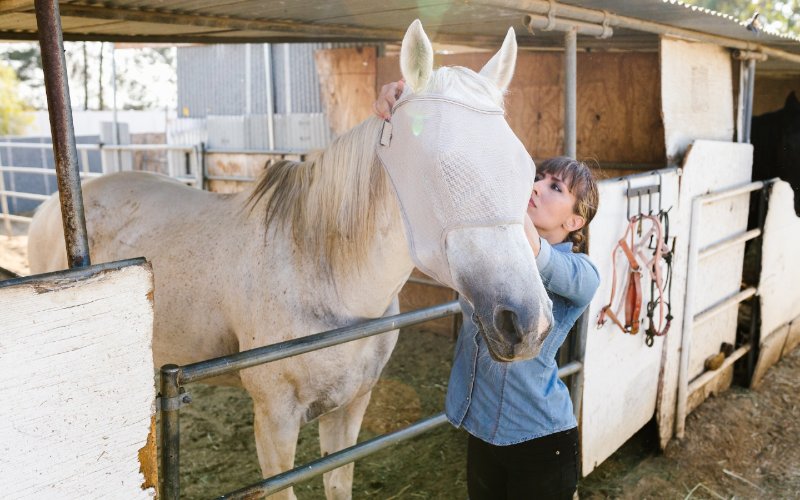
2. Have Enough Land for the Number of Horses You Own
It comes as no surprise that you will need enough land if you are going to own horses. One thing to keep in mind is that horses are herd animals that rely heavily on the socialization and security of their herd. It’s ideal that you have at least one other horse, though some owners choose to provide their horses with other animal companions such as goats, cows, donkeys, sheep, llamas, or alpacas.
As a first-time owner, you need to make sure that you have at least 1.5 to 2 acres of well-managed pasture space per horse. Not only do they need land for exercise, but you will also need to assess your land to see what type of nutrition they will get from grazing and how it can be balanced for their dietary needs.
3. Prepare Your Barn Beforehand
As a first-time horse owner, you should strongly consider getting everything prepared before you ever bring home your horse. The average-sized horse stands about 15 hands high and will do well in a 10-feet by 12-feet stall. Taller breeds that reach 16 hands or more are best suited in a 12-feet by 12-feet stall.
If you are planning on having ponies, miniature horses, or other small farm animals, they can often do well in an 8-feet by 10-feet stall. Your barn is going to need adequate ventilation, suitable flooring, lighting, a hayrack, and plenty of storage for tack, equipment, and feed.
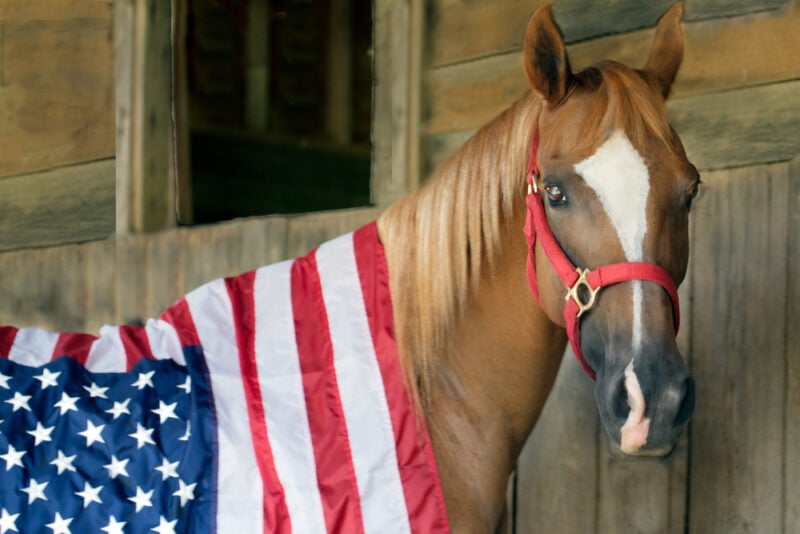
4. Have a Secure Fence Set Up
Having a secure fence of the appropriate height is of the utmost importance when you keep horses. Make sure your designated pasture area is completely fenced and free from any damage or downed trees. You should frequently check your entire fenced-in area to ensure there’s nothing wrong with the fencing. This will prevent your horses from escaping which will not only put them at risk but others also.
Certain horses will be more likely to attempt an escape than others and you also run the risk of them being spooked. Some may try to jump a fence while others may try to go under it or through it, so you’ll need to cover all bases.
The minimum recommended height for a pasture fence for horses is 5 feet. A fence of this height will deter most horses from trying to jump and will also deter people from feeding, petting, or even trying to get in your fence.
If you have a paddock or corral, it’s recommended that the top of the fence be at eye level with the horse or 4 to 6 inches above their withers. The fence material will depend on your budget, preference, pasture size, and personal needs. There are pros and cons to each fence type, so it’s important to do your research and choose what works best for you.
5. Have Prior Knowledge of Riding, Care, and Safety Practices
You should already have some experience with horses before you bring home your first. This includes experience in safety practices, care, and knowing how to saddle up and ride. The last thing you want to do is be overwhelmed by all that you need to learn after you’ve already committed as an owner.
The best way to gain experience if you have not been raised around horses is to reach out to a local stable and consider taking lessons. Lessons are not limited to just the ins and outs of riding but will include teaching you how to care for a horse, perform daily chores, groom, and how to properly use tack and other equipment.
Horses are large, powerful animals and one must be aware of how to safely handle them. Because they are prey animals by nature, they are often very sensitive to outside stimulation and can react very quickly to any perceived threat. An animal of this size can cause serious injury and even death to their handler if safe handling and riding practices are not implemented.
First-time owners should already have experience on how to approach horses, where to stand when handling, and how to lead, saddle up, and release. Understanding a horse’s behavior is essential and owners should be well aware of how to react to keep themselves and their horses as safe as possible whether they are in the saddle or not.
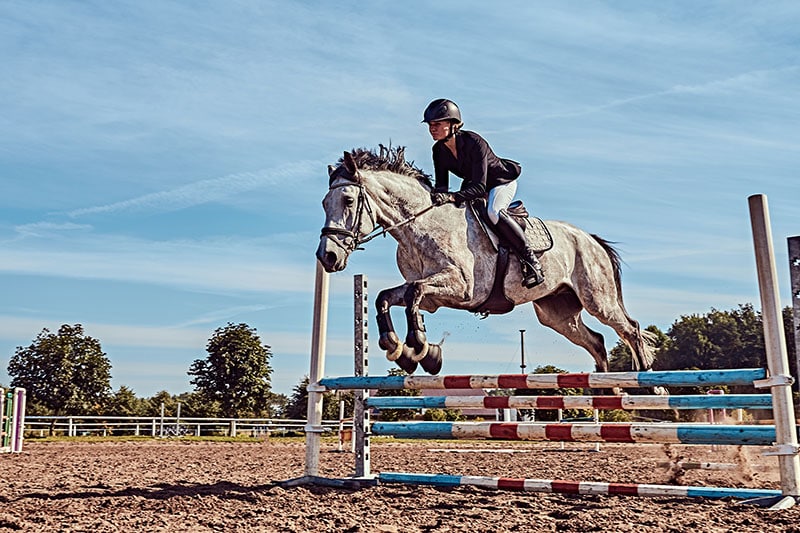
6. Choose the Right Horse for Your Experience Level, Personality, and Needs
Just because you are a first-time owner doesn’t mean that you don’t have experience, but you must start with a horse that matches your experience level. The majority of first-time owners should opt for a well-trained, well-mannered horse with a calmer demeanor that is completely broken to ride.
Novice owners should avoid young horses or those that are heavily spirited or green-broke. A lack of experience when dealing with horses of this caliber could easily result in injury, bad habits, or miscommunication between horse and rider. A horse that is already trained and well-behaved will allow those with less experience to become accustomed to life as a horse owner without the added responsibility of a young, inexperienced, or more hard-to-handle horse.
Some other important factors to consider when choosing your first horse include your specific riding needs or goals, their size and build, and their personality. These animals are incredibly intelligent and emotionally aware, each individual has their own unique personality, so you want to find one that is the perfect match for you all around.
7. Understand and Implement a Proper Dietary Regimen
Ensuring your horse is getting the proper dietary needs is essential for their overall health and well-being. There are many feed, hay, and supplement options out there so it’s easy to get overwhelmed as a first-time owner when trying to figure out what is going to work best.
Horses will need to have access to hay or pasture throughout the day, with additional grain feeding around twice a day. They have very delicate digestive systems, and their stomachs are fairly small, so they are naturally built to graze throughout the day as opposed to eating large meals.
Your average-sized horse will eat around 20 pounds of food and drink around 8 gallons of water each day. Make sure you maintain the water supply and ensure they have access to clean, fresh water at all times. Talk to your veterinarian about the best options for feed, hay, and any additional supplements they may need. You can also discuss an ideal feeding schedule and any other questions you have about their care.
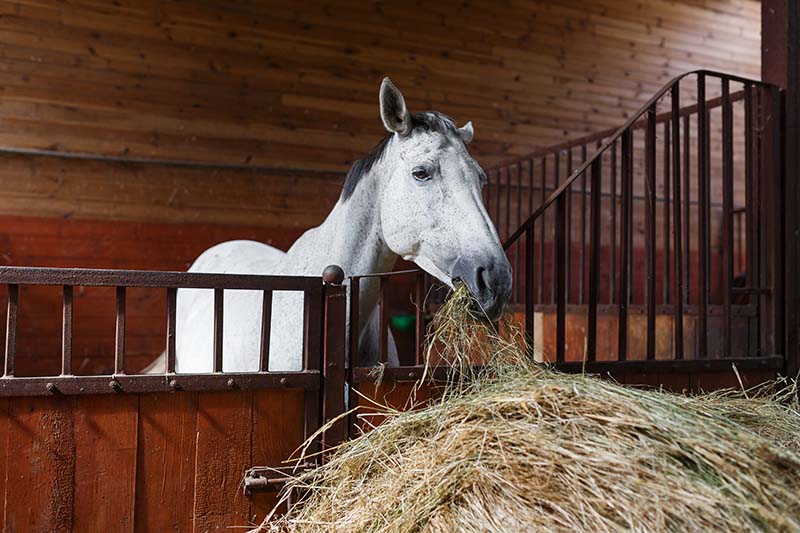
8. Make Sure You Have All the Tack and Equipment Needed
Horse ownership is much more than just the horse itself, there are plenty of essential supplies you will need as a horse owner. It’s going to be best to have a majority of the supplies ready, but some will need to wait until you know more about your horse.
These essentials include a water trough, feeding buckets, halters, lead ropes, saddles, bridles, blankets or saddle pads, riding gear, grooming supplies, and more. Do your research to see what kind of supplies will best suit you. If you ever have any questions about what you need, reach out to an experienced horse owner to help guide you on the best products.
9. Get Established With an Equine Veterinarian
There’s no doubt that you will need to get established with an equine veterinarian to take care of your horse’s health and medical needs. You can always ask around to other horse owners about whom they would recommend in your area, or you can do an online search to see who is nearby and has the best reviews.
Your horse will need regular health exams and kept up to date on any preventative medicine. Educate yourself on the most common health problems to look out for and never hesitate to reach out to your vet if your horse is exhibiting any unusual signs or behaviors.
Caring for a horse can be very expensive, especially when you factor in vet bills. It’s highly recommended that you have an emergency fund set aside to cover any costs associated with illnesses or injuries that could easily happen at any time.
For some, it may be worth looking into the different insurance policies available for horses. While most are geared more toward the equestrian business, ASPCA currently offers pet insurance for horses that is much more suitable for companion horses and those outside of the equestrian business.
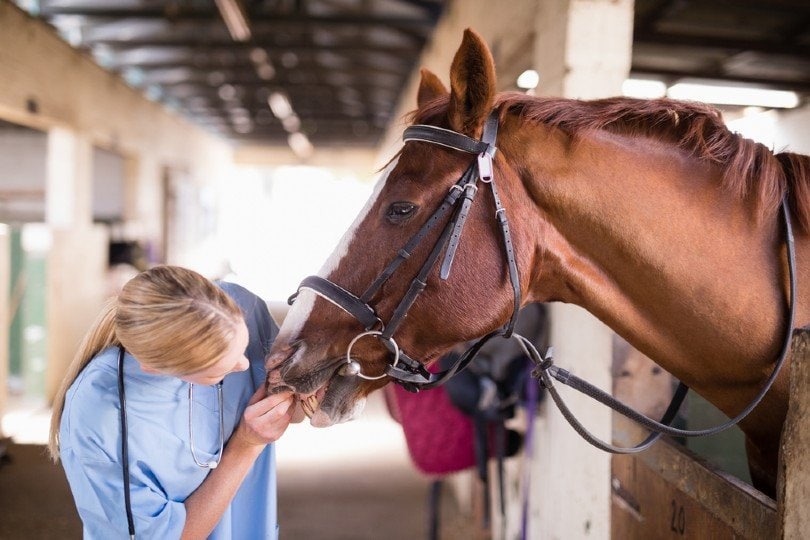
10. Find a Farrier
Regardless if your horse wears shoes or not, you need to make sure they get proper hoof care since this is an important part of keeping them comfortable and sound. Farrier services will vary by your horse’s needs but keeping up with consistent farrier visits is very beneficial.
The farrier care will keep your horse’s hooves balanced, which prevents stress on the hoof wall. Too much stress can lead to cracks and separation, which can also put a lot of strain on their joints and tendons and lead to injury.
11. Create a Daily Routine
You must get yourself and your horses on a daily routine so that you can best break up your day in a way that works well with your schedule and your horse’s needs. Having a set routine will not only make you more efficient, but your horse will also pick up on the routine as well.
If you have any questions about how to best implement a chore routine, ask fellow horse owners how they organize their tasks to get some ideas of how you can make it work for you.
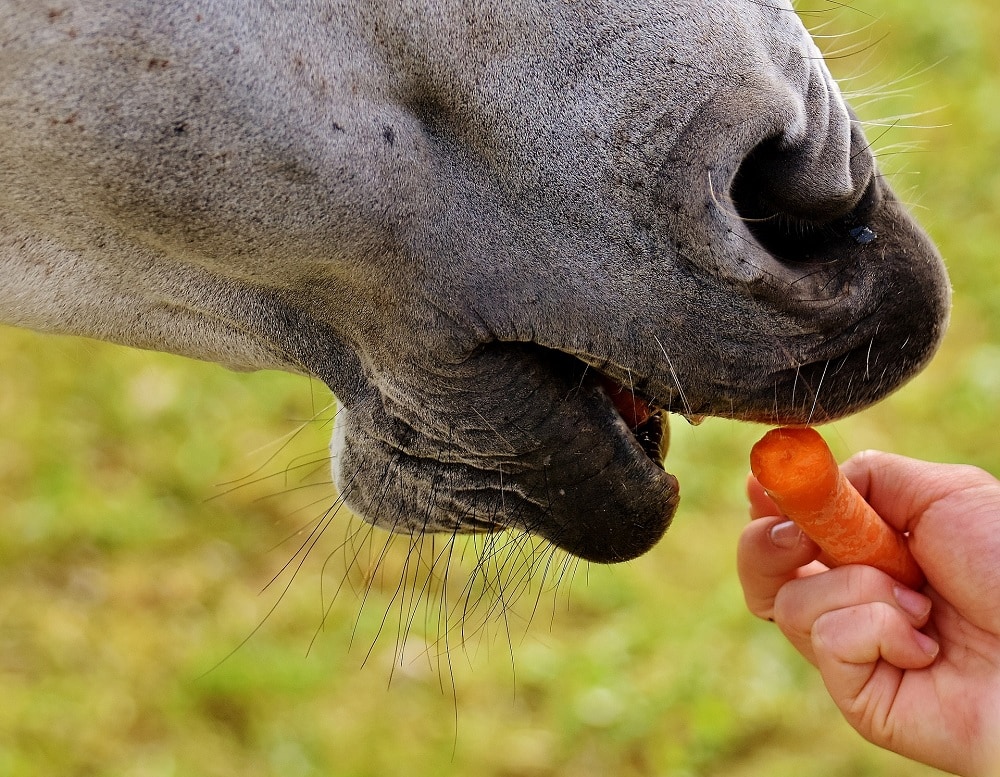
12. Have a Plan for Manure
Keep in mind that you are going to be mucking stalls daily, which means you are going to have a lot of manure and used bedding on your hands. Daily stall cleaning is necessary for your horse’s health and comfort, so you need to have a plan in place for manure management.
Set aside an area for your manure pile and know what you will be doing with it when it’s time to clear it out. Some horse owners choose to use the manure as fertilizer on their property by spreading it across an open area or field.
Remain cautious of spreading manure in smaller pastures occupied by the horses due to the increased risk of parasites. Another option is having the manure hauled off-site for use in fertilizing or composting. This is especially convenient if you do not have the land space or equipment to spread it on your own property.
 Conclusion
Conclusion
If you are ready to take on the commitment and responsibilities of horse ownership, you are in for a very rewarding lifestyle. After all, there’s nothing quite like sharing a bond with a horse. Following these critical tips will help you best prepare for this new and exciting adventure.
Remember that you can always reach out to your veterinarian or more experienced horse owners if you ever find yourself needing any questions answered. Experience comes with time and knowledge, and we all have to start somewhere.
Featured Image Credit: Melek Arslan, Pexels
 The 12 Tips for a First-Time Horse Owner
The 12 Tips for a First-Time Horse Owner